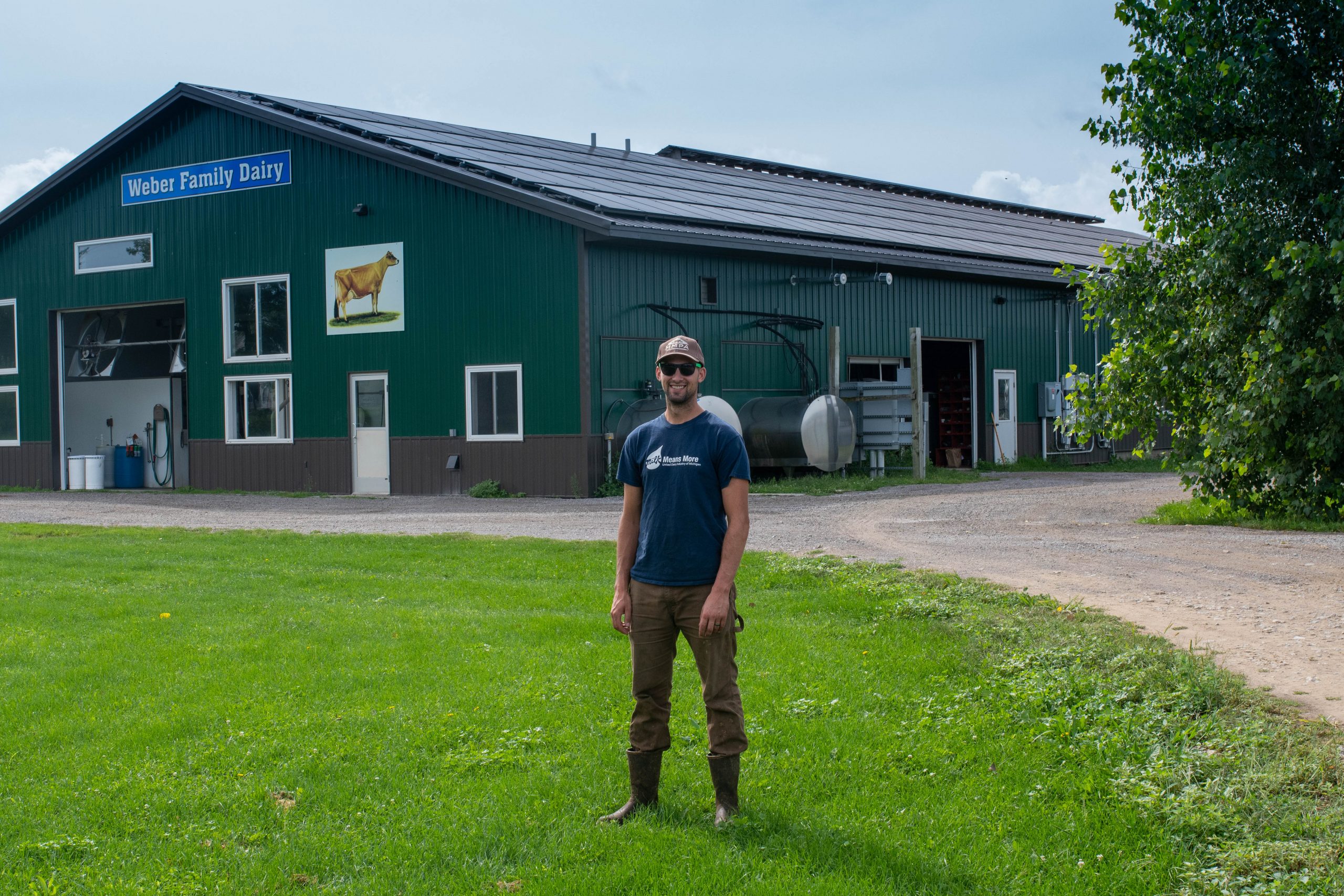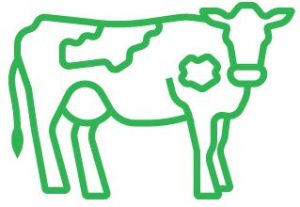MMPA is committed to cooperative social responsibility and sustainable business practices throughout our entire supply chain. At the farm level, MMPA members are also on a sustainability journey. We’re checking in with a handful of member farmers leading the charge with this sustainability spotlight series.

In 2014, James Weber (District 7, Vassar, MI) came home to his family’s former dairy farm with 130 Jersey cows and a strong drive to do better. Through strategic management and an increased focus on sustainability, he’s not shy of trying new things or making incremental changes.
“The thing I’m most proud of is that we are continuing to chase sustainability,” he said. “It’s a project that’s never really done—we always try to find the next thing that can help us improve. We can look back and be proud of the accomplishments that we have made, but just know that there is a lot more to go.”
When Weber built the barn housing his milking parlor, he topped it with 200 kilowatt solar panels, used to offset around half of the dairy’s energy costs. He has continued to add a few extra tools to increase energy efficiency. “Any way that we are able to capture energy efficiency if it’s something that has a good return on investment, we go after it,” he said.
A recent addition is a variable speed pump and vacuum controlled pump to the milking equipment which reduces energy consumption. In addition to converting to 100 percent LED lighting, Weber installed thermostats on the fans used to cool the herd, which both helps with cow comfort and ensures the fans only run when they are needed. The farm also uses a plate cooler to recycle the water used to cool down milk so it can be repurposed when washing out the parlor, providing drinking water to the herd or watering their fields.
To source the bedding in a newly constructed freestall barn, Weber uses composted-bedded pack, compost system with sawdust along with
cow manure and urine.The pack reduces costs and recycles manure while allowing him to not use sand, a depleting natural resource, in his freestalls. His goal is to add a long-term manure storage that’s a compost facility.
Through MMPA’s Cover Crop Project, Weber started planting cover crops, in mixes of three to seven species, last fall. “This year we are going to be covering about 70 percent of our land with cover crops so some will never see bare dirt. We’re looking more now into the species we put on that land so we can look at different mixes that will help scavenge and hold nutrients available for the next crop.”
The farm has a Comprehensive Nutrient Management Plan, or CNMP, to ensure they’re making the best use of nutrients to maintain soil health. In addition, Weber says they conduct soil testing every three years on all their land and maintain 80 acres of woods.
A member of MMPA’s Farmer Sustainability Advisory Committee, Weber meets with fellow members, MMPA staff and customers to discuss current on-farm sustainability initiatives. He wants consumers to be aware of the progress farmers have made and are continuing to work on.
“A lot of famers are continually trying to do better with the natural resources that public has such a high priority on, whether that be air, water or land itself. That’s front and center for just about every farmer.”
Composting: The process of composting is a controlled decomposition of manure, crop residue, bedding or other organic matter by micro-organisms in the presence of oxygen. The end product is a nutrient-stable product.
Comprehensive Nutrient Management Plan (CNMP): A total planning tool that details the animal production related activities for a specific farming operation. A CNMP describes a farm’s production practices, as well as the equipment and structure(s) used. It combines conservation practices with management activities to create a system that addresses animal production operations, from feed inputs to the utilization of animal manure.

FARM
Weber Family Dairy
Vassar, Michigan

HERD
400 total,
200 milking

LAND
800 acres of corn, soybeans,
dry beans and alfalfa

VERIFICATIONS
MMPA Sustainability Survey, Certified Nutrient Management Plan, Biodiversity Action Plan, Farmers Assuring Responsible Management Animal Care
This article was originally published in the September/October 2021 issue of the Milk Messenger. Subscribe »

